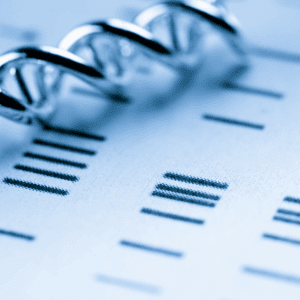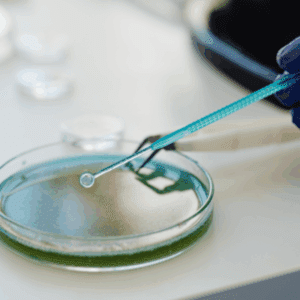Cancer researcher Dr. Paul Oberstein explains when patients should undergo molecular testing and why early testing can be crucial. Dr. Oberstein also discusses new methods like blood-based assays that can detect mutations in cancer without a biopsy and addresses how AI may play a future role in personalizing cancer care.
Dr. Paul Oberstein is Section Chief of Gastrointestinal (GI) Oncology at NYU Langone and Assistant Director of the Pancreatic Cancer Center of NYU Langone’s Perlmutter Cancer Center. Learn more about Dr. Oberstein.
Related Resources
Transcript
Jamie Forward:
At what point in their care should patients undergo molecular testing?
Dr. Paul Oberstein:
Yeah. So, we say early and often. But the truth is, it really depends on the type of tumor, right? So, for some cancers like lung cancer, molecular testing is essential for the first decision about therapy. And so, it has to be known or should be known before someone even starts treatment.
For some, the initial treatment does not depend on molecular testing and it’s important down the road maybe six months, 12 months later.
So, I think that it’s always good to get the results early, so that we have the information in hand. In case a person needs to switch therapy, they know what they can look for. But it really depends on the cancer type. But I would say that if someone is metastatic cancer, it’s always beneficial to get information about the mutations of the tumor, and to get molecular testing. There’s also a lot of discussion about how to do molecular testing.
So, you need to have tumors to do testing. And traditionally this was done on a biopsy or surgical sample of a tumor. But lately, we’ve been able to do testing through blood-based assay. Where we actually collect blood from patients and identify tumor cells in the blood.
So, you can identify tumor cells in the blood and then get the mutations in those tumor cells. So, sometimes you don’t even need to do a biopsy to do this testing and again, it’s dependent on the specific tumor.
Jamie Forward:
Sure. And is AI having an impact at all on this molecular testing?
Dr. Paul Oberstein:
Yeah. So, I’d say AI, like many things, it definitely will have impact.
It hasn’t yet quite changed what we do. One of the interesting things about molecular testing is that it helps – it derives – it gives us – sorry, develops a very large amount of data about tumors. And we need AI and things like AI to help us understand which – what of that data is really relevant. You know? What’s meaningful. So, we know that when we currently get molecular testing results we’re only utilizing a portion of those results. I think as AI becomes more skilled and experienced and the ability to help with this, we’ll learn more from tumors from the same information.



